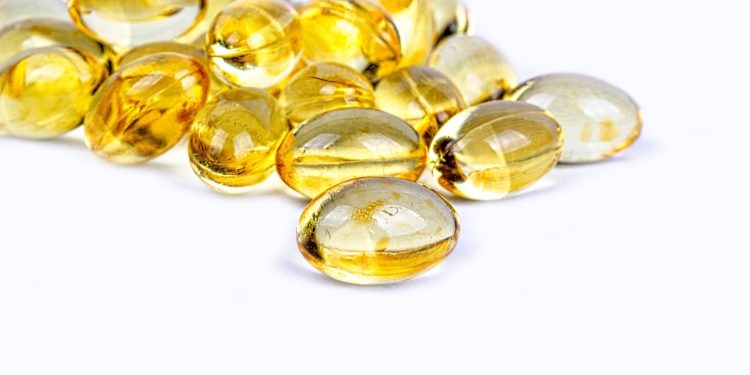In the quest for optimal health, we often find ourselves navigating a maze of supplements and dietary choices. Among the essential nutrients, iron and vitamin D stand out for their pivot roles in sustaining our well-being. Iron, being the vital component of hemoglobin, ensures efficient oxygen transportation in the blood, while Vitamin D, often dubbed as the “sunshine vitamin” , also plays a crucial role in bone health and immune function.
Vitamin D
Vitamin D is fat- soluble and it is necessary for the healthy mineralization of bone. Vitamin D plays a double role in the human body. How? Vitamin D is both a nutrient we eat and a hormone our bodies make. According to the research, Vitamin D can reduce cancer cell growth, help control infections and reduce inflammation.
Chemical Names: Ergocalciferol, Cholecalciferol
- It is fat-soluble.
- Function: It is necessary for the healthy mineralization of bone.
- Deficiency: This may cause rickets and osteomalacia, or softening of the bones.
- Good sources: Exposure to UVB rays from the sun or other sources causes the body to produce vitamin D. Fatty fish, eggs, beef liver, and mushrooms also contain the vitamin
Note: Getting enough vitamin D is important for typical growth and development of bones and teeth, as well as improved resistance to certain diseases.
What Does Vitamin D Do?
- Reducing the risk of Multiple Sclerosis: low levels of vitamin D are linked with an increased risk of MS
- Decreasing the chance of heart disease: Low vitamin D levels have been linked to increased risk of heart diseases such as hypertension, heart failure, and stroke.
- Reducing the likelihood of severe illnesses: vitamin D may make severe flu and COVID-19 infections less likely. A recent review found that low vitamin D levels contribute to acute respiratory distress syndrome
- Supporting immune health: People who do not have adequate vitamin D levels might be at increased risk of infections and autoimmune diseases, such as rheumatoid arthritis, type 1 diabetes, and inflammatory bowel disease
What Are the Symptoms of Vitamin D Deficiency?
- tiredness, aches, and pains
- severe bone or muscle pain or weakness
- stress fractures, especially in your legs, pelvis, and hips
- Muscle weakness
- Increased risk of falling
- Joint and muscle aches and pains
- Autoimmunity
- Weakened immune system
- Fatigue
- Mood changes
Iron
It is one of the most important minerals that helps maintain healthy blood. It affects all ages, with children, women who are pregnant or menstruating, and people receiving kidney dialysis among those at highest risk for this condition. Iron is important for healthy brain development and growth in children, and for the normal production and function of various cells and hormones.
Health Benefits of Supplementing Iron
Iron is an essential mineral that plays critical roles in health. In addition to oxygen transportation, iron is necessary for growth, energy production, hormone synthesis, and neurological development. People who cannot get enough iron through diet or who have certain medical conditions may require iron supplements. Average adult needs about 3-4g of iron in a day.
What Does Iron Do?
- It regulates circadian rhythm, which means it regulates your internal body clock and keeps it maintained by keeping an eye on the physiological processes in humans, like sleep/wake cycle, feeding, body temperature, hormone secretion, and metabolism .
- Improves muscle function: If there is an inadequate amount of iron in your body, your muscles will eventually lose their shape and elasticity. Iron deficiency, independent of anemia, is known to cause functional impairments of skeletal muscle function
- Neurotransmitter synthesis: You may not think iron regulates your mood, but it does. Iron levels influence the synthesis and signaling of key neurotransmitters like dopamine, noradrenalin, adrenaline, and 5-hydroxytryptamine, which are involved in emotion, attention, reward, movement, and more.
Symptoms of Low Iron
- Fatigue or lack of energy
- Shortness of breath
- Difficulty concentrating
- More frequent sickness
- Poor body temperature regulation
- Pale skin
- Heart palpitations
- Headaches
- Ringing, hissing, or buzzing noises inside your head
- Sore tongue or difficulty swallowing
- Altered taste perception
- Hair loss
- Pica (cravings for non-food items)
- Spoon-shaped nails
- Restless leg syndrome
Final Thoughts
While the research regarding the interactions between iron and vitamin D suggests a link between the two vitamins, little information indicates that they cannot or should not be taken together.Because they may support each other in maintaining sufficient levels, popping back a multi or another supplement that contains both iron and vitamin D may be beneficial to support overall health and performance.
























